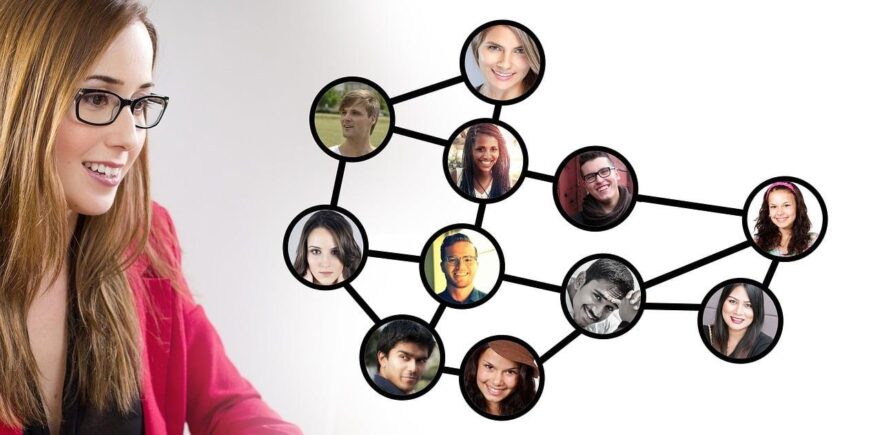Over the past few years, social connections have been strained to their limit. The COVID lockdowns, political wrangling, economic challenges, and the recent mental health crisis have all made it more difficult to stay connected with others.
This shift is almost unprecedented, at least for the past century. Traditionally, people are very sociable, enjoying large gatherings and small dinner parties alike. All these events, and the close friendships that often result, are an important part of the human experience. Being unable to see other people for months at a time took its toll on almost everyone.
Our recent experiences beg the question: why was the separation so damaging? Sociologists and psychologists alike give us an answer: social connections are critical for your physical and mental health. We already knew this before the pandemic, but it’s never been clearer than considering recent experiences.
Let’s look at how social connections impact your health.
Understanding Social Connections
For the purposes of our discussion, social connections are relationships between people. These connections can include friends, family, community, acquaintances, and even coworkers. Similarly, there can be differences in the quality of such relationships. For example, some can be very close, others distant, and still others, toxic.
According to experts, people can benefit from non-negative social connections at most levels. In other words, if a relationship sucks the life out of you, it isn’t beneficial. On the other hand, people can benefit from even casual connectedness. Having a neighbor you say “hello” to and discuss neighborhood problems with can help you stay connected. Similarly, joking with a server at your favorite restaurant lets you build a connection, even though it’s brief.
However, relationships with close friends and family are the most important. That’s because we typically can trust people in these categories. And if there’s joy or struggle in your life, these are the people you share with first. Naturally, sharing with someone you trust helps lift both people up, whether the news is good or bad.
The Link Between Social Connections and Mental Health
By now, multiple studies have shown that being connected with other people is beneficial to our mental health. While scientific studies already indicated the importance of being connected to other people, the COVID-19 lockdowns gave sociologists and psychologists even more evidence. Simply put, many of the more casual connections, like restaurant servers or community gatherings, were severely restricted. Many people felt lonely, anxious, and depressed as a result.
However much damage the lockdown isolation did for some people, others were more resilient. Many people successfully used Zoom, Facetime, and other methods to stay connected. Those people had less anxiety and depression. They were also more likely to take care of their health during that time.
But, why does staying connected with other people work? Medical research shows that being connected with other people helps release a hormone, called oxytocin, that promotes bonding between people. Combined with other biological processes, oxytocin also helps us regulate our emotions and develop empathy for others. At the same time, we typically feel better about ourselves.
Feeling better about ourselves is one of the best predictors of self-care. Think about it this way: most of us have “bad” days when we feel down, depressed, or ill. When that happens, we typically want to stay home, maybe drink some coffee, or sleep in. You might not want to take a shower, brush your teeth, or eat healthily, either. On the other hand, feeling happy or confident encourages us to take care of ourselves and look our best.
Here’s another way to think about the connection between connectedness and health. Most of us, if we want to “escape” from our problems, will go out with friends. Or we might confide in our bestie. In either case, we feel unburdened because human connections help mitigate the challenges we’re facing. In turn, anxiety or depressed thoughts will lessen for a while.
If you experience connectedness more often, then the protective effect is more significant.
Image by karabulakastan from Pixabay
The Link Between Social Connections and Physical Health
Just like social connections affect our mental health, they’re also important for our physical health. In fact, people who are socially well-connected, and whose relationships are healthy, often live longer than people who are isolated. Furthermore, their quality of life is typically better.
This difference has multiple prongs. First, people who experience a lot of stress in their relationships tend to have more health issues. People going through a divorce, dealing with a toxic boss, or caring for a sick loved one all practice fewer healthy habits. This can reduce their health through neglect. In other words, bad relationships are injurious to more than your mental health. They can make you sick.
Worse, people with few or poor relationships experience a lot more inflammation, which can cause health issues like arthritis. Similarly, they are at higher risk of heart problems, obesity, and other chronic health conditions. As one paper through the NIH pointed out recently, loneliness is becoming a public health crisis because of the negative impacts on our health.
Luckily, being connected to other people has the opposite effect. Having close, healthy connections can lower your blood pressure, reduce inflammation, encourage healthy blood sugar, and more. Some of this comes from improved mental health: People with good self-esteem take better care of their health, are more trusting, and excel at interactions with strangers.
However, great mental health isn’t the only reason why good connections benefit your physical health. That’s because having other people to spend time with improves your resilience and ability to recover from life’s challenges.
Here’s a great example. Let’s say that you need some surgery, and you’ll be in the hospital overnight. Not only is there a lot of anxiety associated with going under the knife (like the risks of anesthesia), but after discharge from the hospital, you may not be able to function at a normal level for a while. Knowing that you have help and moral support will reduce the stresses of being vulnerable. At the same time, you are less likely to hurt yourself physically by doing something that you shouldn’t. These factors all help you heal faster.
Finally, studies by the CDC and other entities indicate that people with connections have a better immune system. While scientists haven’t determined an exact cause, it likely has to do with the healthier habits enjoyed by this group. For instance, getting enough sleep and proper nutrition are well-known immune system boosters.
Image by simoneforum19800 from Pixabay
The Role of Social Connections in Longevity and Quality of Life
Considering that social connections help improve or preserve your physical and mental health, it’s unsurprising that connected people often live longer. In fact, communities with the highest rates of close social connections have the highest rates of people who live to old age.
Similarly, people with social connections typically have a better quality of life. This goes beyond having people to go to a movie with on Saturday night. It’s even more than knowing you can count on someone after that dreaded surgery. Rather, you can enjoy people’s company and feel better, even when you already have low stress. And when someone in your close social circle needs to unload about something in their life, it feels great to be trusted.
Of course, not everyone seeks out a lot of social interaction. For those people, connection can simply mean feeling connected to someone else. That’s why some people can have few friends, or live farther away from them, without suffering the ill effects. You can even employ meditation techniques to improve your health in this manner.
Enhancing Social Connections for Better Health
Staying connected with people, and building new connections, does require some effort. Most of us build connections by interacting with others in the community. We also frequently form relationships through other channels, such as a house of worship or civic club. But what about the relationships we already have?
Technology like social media and video conferencing can be a huge help. During the pandemic, these were the main options that we had, and sociologists found that electronic communications can be effective at retaining connections. Sometimes just seeing someone’s face on a screen or hearing their voice through the computer speakers is all you need. In fact, when it comes to connecting, video is a high-tech successor to telephones and even letters. Likewise, social media lets you communicate with other people from long ago and far away.
Naturally, it’s best that we spend time together physically when possible. This is one reason why trips to see relatives and hang out with old friends are so important. During that time, we can reconnect in ways that telephones and the internet won’t allow. And some relationships only work in person. Loss of in-person connectivity was one of the reasons why people developed so many physical and mental health problems.
Speaking of mental health issues, it’s always important to reach out for professional help when necessary. While friends are wonderful for many things, if you develop significant mental distress, friends are likely not enough. In addition, untreated mental illness may turn you into a social connection that steals people’s energy rather than restoring it.
Image by Laurentiu from Pixabay
Natural Supplements: A Complement to Social Connections
While the importance of social connections for our mental and physical well-being is paramount, there are other avenues to explore that can complement these benefits. One such avenue is the use of natural supplements, which have been revered in various cultures for their traditional uses.
Take, for instance, Shilajit. This resinous substance, found in the mountains of the Himalayas, Caucasus, and Altai, has been traditionally used in Ayurvedic practices. Ancient practitioners believed Shilajit could offer benefits like increased vitality and overall well-being. However, it’s important to note that these claims are based on traditional use and practices, and scientific research on these benefits is still ongoing.
While social connections can offer emotional and physiological benefits, such as the release of oxytocin, it’s essential to approach natural supplements like Shilajit with an understanding of their traditional context. They should not be seen as a replacement for the fundamental need for human connection but rather as a potential complement to it.
Disclaimer: The benefits attributed to Shilajit are based on traditional uses and beliefs. The FDA has not evaluated these claims, and scientific evidence may vary.
Conclusion
Social connections are the backbone of our society, and there’s a good reason why. The way we interact with other people has a significant effect on our physical and mental health. Bad relationships, and the presence of insufficient connections, can make us sick and drive us to an early grave. On the other hand, people with satisfying, long-term relationships often live longer and in better health.
Are you taking care of your relationship quality?
Sources:
https://www.ncbi.nlm.nih.gov/pmc/articles/PMC3150158/
https://www.psychiatry.org/News-room/APA-Blogs/Social-Connections-Key-to-Maintaining-Mental-Well




